Links
Important Dates
Submission Deadline
July 31 (Extended), 2025
Notification of Acceptance
August 15 (Extended), 2025
Camera Ready Submission
August 31, 2025
Registration Deadline
August 31, 2025
Contact Us
Conference Secretory
Email: icdis@acamail.org
Keynote Speakers
-
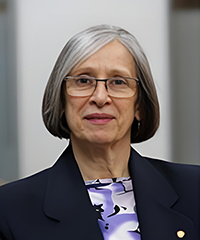
Ljiljana Trajkovic
Research field: Communication Network, Nonlinear Circuits and Systems.
Professor, Simon Fraser University, Canada.
Ljiljana Trajkovic is Professor with the School of Engineering Science, Simon Fraser University in Canada. She graduated from University of Pristina in 1974, got her master's degrees in electrical engineering (1979) and computer engineering (1981) from Syracuse University and PhD in electrical engineering from University of California, Los Angeles in 1986. She was a National Science Foundation Visiting Professor at UC Berkeley College of Engineering, and a research scientist and member of technical staff at Bell Labs and Bell Communications Research. She is the Fellow of IEEE. And she was the President of IEEE Circuits and Systems Society, IEEE Systems, Man, and Cybernetics Society and she currently serves as Editor-in-Chief of IEEE Transactions on Human-Machine Systems. In 2005, she was elected Fellow of the Institute of Electrical and Electronics Engineers "for contributions to computer aided design tools for circuit analysis".
-
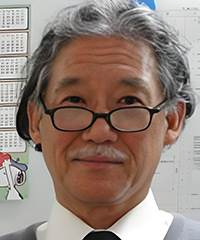
Yoshiaki Daimon Hagiwara
Research field: ADC, DRAM and High-speed Cache SRAM Buffer Memory Chips, Micro Controller Chips, Semiconductor Chips for AIPS Robotics, Solar Cell Energy Solutions.
Professor, Sojo University, Japan.
Hagiwara graduated California Institute of technology (Caltech) in Pasadena, California in USA with BS71 with honor, MS1972 and PhD1975 with the major in Electric Engineering and with the minor in Physics. In February1975, he joined Sony in Tokyo, Japan and was engaged first in the early development of Sony image sensors. While working for Sony from 1975 to 2008, he was engaged in the early developments of image sensor and the digital camera chip set including the ADC, DRAM and high-speed Cache SRAM buffer memory chips and micro controller chips. Before retiring from Sony at the end of July 2008, he was engaged in the PS2 and PS3 chip set developments. He was invited to talk at CCD1979, ECS1980, ESSCIRC2001, ESSCIRC2008 and ISSCC2013. While working at Sony until July 2008, he was serving as a visiting professor at Caltech since 1998 to 1999 in the office of Prof. C. A. Mead in Electrical Engineering department and also in the offices of Prof. T.C. McGill and Prof. James McCaldin in Applied Physics department. He was also serving as a visiting professor since 2003 till 2006 in the office of Prof. Haruo Kobayashi in Electrical Engineering department at Gunma University in Japan.
In 1992 he also served as a member of JEDEC memory standardization committee and also as the IEC TC47 technical committee chair of the international standard committee (IEC). He also served as the international program chair and an operational committee member in IEEE EDS sponsored ICMTS conferences, IEEE ISSCC conferences for which he served as the ISSCC Asian Committee chair and also as the ISSCC international technical program committee (ITC) chair in series. He was also a member in the program committee (PC) and the operational committee (OC) and is now serving in the advisory committee (AC) of the IEEE Cool Chips conferences in series. He also taught from 2020 to 2021 the AIPS, Artificial Intelligent Partner System for AI robotics at Kanagawa Institute of Technology in Japan.
In 2008 he founded and worked as the president of Artificial Intelligent Partner System, AIPS, a nonprofit research organization, NPO, registered by Kanagawa prefecture government in Japan. Since 2017, he is serving as an operational committee (OC) member and also as a technical program committee (PC) member of Department of Education in Society of Semiconductor Industry Specialists (SSIS) in Japan. Since 2009 till 2017, he taught graduate and undergraduate students as a full professor of Information and Communication Science department and is still now serving as a specially appointed professor at the president office in Sojo University in Kumamoto-city, Japan working for developments of semiconductor chips for AIPS robotics and Solar Cell energy solutions. He is Caltech Distinguished Alumni, IEEE Life Fellow and AAIA Fellow.
-
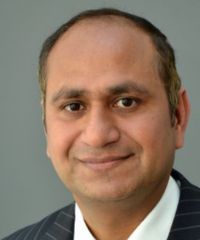
Mohan Lal Kolhe
Research field: Sustainable Electrical Energy Systems, Smart Grid and Grid Integration of Renewable Energy Systems, Electric Vehicles, Hydrogen Energy Technologies, Solar Photovoltaic and Wind Energy Systems Engineering, Electro-Mechanical-Chemical Energy Conversion and Management, Power System Dynamics, Electrical Machines, Energy Conversion and Management, Techno-Economics of Energy Systems.
Professor, University of Agder, Norway.
Prof. Dr. Mohan Lal Kolhe is a full professor in smart grid and renewable energy at the Faculty of Engineering and Science of the University of Agder (Norway). He is a leading renewable energy technologist with three decades of academic experience at the international level and previously held academic positions at the world's prestigious universities, e.g., University College London (UK / Australia), University of Dundee (UK), University of Jyvaskyla (Finland), Hydrogen Research Institute, QC (Canada), etc. In addition, he was a member of the Government of South Australia's first Renewable Energy Board (2009-2011) and worked on developing renewable energy policies. Prof. Kolhe is an expert evaluator of many prestigious international research councils (e.g., European Commission: Erasmus+ Higher Education – International Capacity Building, Royal Society London (UK), Engineering and Physical Sciences Research Council (EPSRC UK), Cyprus Research Foundation, etc.). Professor Kolhe has successfully won competitive research funding from the prestigious research councils (e.g., Norwegian Research Council, EU, EPSRC, BBSRC, NRP, etc.) for his work on sustainable energy systems. His research works in energy systems have been recognized within the top 2% of scientists globally by Stanford University's 2020, 2021 matrices. He is an internationally recognized pioneer in his field, whose top 10 published works have an average of over 175 citations each.
-
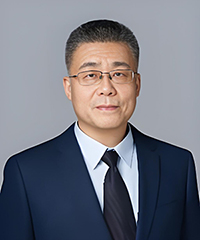
Xiangdong Zhang
Research field: Light-matter Interactions, Quantum Information, Quantum Computing, Quantum Sensing and Imaging, Photonic Quantum Chips, Artificial Intelligence and Machine Learning Based on Photonic Chips, Nano-optics and Optoelectronic Devices.
Distinguished Professor, Beijing Institute of Technology, China.
Prof. Xiangdong Zhang received his bachelor's and master's degrees in physics from the Department of Physics of Hebei Normal University in 1988 and 1993 respectively, and received his Ph.D degree from the Institute of Physics of the Chinese Academy of Sciences in April 1998. He is currently a distinguished professor at Beijing Institute of Technology. In addition, he was a visiting scholar at the Department of Physics of the Hong Kong University of Science and Technology from May 1998 to July 2002, and conducted postdoctoral research. From August 2002 to September 2011, he served as a professor and doctoral supervisor at the Department of Physics of Beijing Normal University. In October 2011, he was transferred to the School of Physics of Beijing Institute of Technology. For many years, Prof. Zhang has been committed to the research on the physical properties and applications of photonic crystals and low-dimensional nanostructures, exploring the use of artificial micro-nanostructures to control classical and quantum light fields, and has achieved many innovative results. He has published more than 160 papers in core journals such as Phys. Rev. Lett., Adv. Matter., Appl. Phys. Lett. and Phys. RevA/B/E. His papers have been cited more than 4,000 times by papers published in SCI journals such as Nature, Science, Nature Materials, Nature Physics and Phys. Rev. Lett. He has given invited reports at international conferences many times, and his research results have been specially reported by Physics Web, Phys. World, etc. In 2004, he was selected into the "New Century Excellent Talent Support Program" of the Ministry of Education, and in 2008 he was awarded the National Outstanding Young Scientist Fund. He is currently undertaking a number of sub-projects such as the National Natural Science Foundation of China General Project, the Ministry of Science and Technology's Major Research Program/Quantum Control, etc.
-
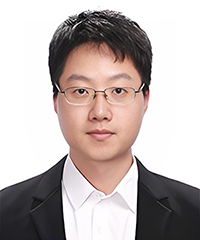
Fanyi Meng
Research field: Integrated Circuit Science and Engineering, Electronic Information, Microelectronics and Solid-State Electronics, Circuits and Systems.
Professor, Tianjin University, China.
Professor Fanyi Meng received his Ph.D. in integrated circuit design from Nanyang Technological University, Singapore. He is currently a professor and doctoral supervisor at the School of Microelectronics, Tianjin University. He is a national-level young talent in China, a distinguished expert of the China Association for Science and Technology, a member of the China Committee of the Federation of Engineering Organizations in the Asia-Pacific (FEIAP), a member of the China Engineering Education Expert Group, and a senior member of the IEEE. His main research directions are silicon-based CMOS RF/millimeter wave/terahertz front-end chips and silicon-gallium nitride heterogeneous integrated chips and systems, with application areas including multi-beam communications, phased array radars, and high-density power electronics. He has presided over 6 national scientific research projects in China, published more than 100 academic papers, written 2 English monographs, and served as deputy editor-in-chief of IEEE TCAS-II. In 2020, he was awarded the title of Outstanding Science and Technology Worker of the Chinese Institute of Electronics.
-
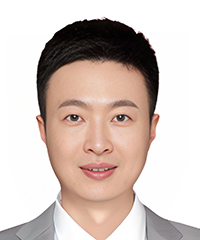
Yang Yue
Research field: Intelligent Photonics, Optical Communications, Optical Perception, Optical Chip.
Professor, Xi'an Jiaotong University, China.
Yang Yue received the B.S. and M.S. degrees in electrical engineering and optics from Nankai University, China, in 2004 and 2007, respectively. He received the Ph.D. degree in electrical engineering from the University of Southern California, USA, in 2012. He is currently a Professor with the School of Information and Communications Engineering, Xi'an Jiaotong University, China. He is the founder and current PI of Intelligent Photonic Application Technology Laboratory (iPatLab). Dr. Yue’s current research interest is intelligent photonics, including optical communications, optical perception, and optical chip. He has published ~300 journal papers (including Science) and conference proceedings with >12,000 citations, one book, seven edited books, two book chapters, >70 issued or pending patents, >200 invited presentations (including 1 tutorial, >30 plenary and >80 keynote talks). Dr. Yue is a Fellow of SPIE, a Senior Member of IEEE and Optica. He is also among the Top 2% Scientists List Worldwide by Stanford University. He is an Associate Editor for IEEE Access and Frontiers in Physics, Editor Board Member for four other scientific journals, Guest Editor for >10 journal special issues. He also served as Chair or Committee Member for >100 international conferences, Reviewer for >70 prestigious journals.
-
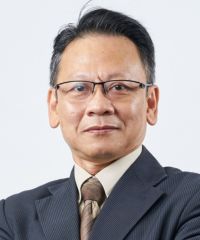
Gwee Bah Hwee
Research field: Hardware Security, Hardware Assurance, Asynchronous Circuit, Machine Learning and Image Processing.
Associate Professor, Nanyang Technological University, Singapore.
Dr Bah-Hwee Gwee received his BEng (Hons) degree from University of Aberdeen, UK, in 1990. He received his MEng and PhD degrees from Nanyang Technological University (NTU), Singapore, in 1992 and 1998 respectively. He was an Assistant Professor in School of EEE, NTU from 1999 to 2005 and has been an Associate Professor since 2005. He had held several school administrative committee appointments including Chairman of EEE Career Guidance Committee from 2000 - 2005, Chairman of EEE Outreach Committee from 2005 - 2009, Assistant Chair (Students) EEE from 2010 - 2014 and has been the Assistant Chair (Outreach) EEE since 2017. He is the Deputy-Director of National Integrated Centre for Evaluation (NiCE). Dr Gwee was the Principal Investigators (PIs) of a number of research projects including the ASEAN-European Union University Network Programme, Ministry of Education (MoE) Tier-1 and Tier-2, Defence Science Organisation, Defence Science and Technology Agency, Temasek Laboratories@NTU, A-STAR PSF, Cybersecurity Agency, National Research Foundation projects. He was also the co-PIs of DARPA (USA), NRF (SOCure), NRF (CHFA), NTU-Panasonic, NTU-Lingköping and GAP (Proof of Concept) Fund research projects. His total research grant is amounting to more than US$15m. He has filed 8 US patents in circuit design and hardware security, 5 of them have been granted by US PTO. His research interests include hardware security, hardware assurance, asynchronous circuit, machine learning and image processing. Dr Gwee was awarded Defence Technology Prize Team (R&D) category in 2016, TL@NTU Scientific Award, 2016, TL@NTU Best Publication Award in 2012 and the NTU EEE Teaching Excellence Award – Year 3 in 2013. He has co-founded 2 start-ups. Dr Gwee was the Chairman of IEEE Singapore Circuits and Systems Chapter in 2005, 2006, 2013 and 2016. He has been the members of IEEE Circuits and Systems Society (CASS) DSP, VSA and Bio-CAS Technical Committees (TC) since 2004. He was the Chairman of IEEE CASS DSP TC from 2018 - 2020. He has served in the Organizing Committees for IEEE BioCAS-2004, IEEE APCCAS-2006, Technical Program Chair for ISIC-2007, ISIC-2011, ISIC-2016 and served in the steering committee for IEEE APCCAS 2006 - 2008. He was the General Chair of IEEE DSP 2018, IEEE SOCC 2019, IEEE ISICAS 2021 and will be the General Chair of ISCAS 2024 (IEEE CAS Society flagship conference). He was the Associate Editor for IEEE CAS Magazine (from 2020 – present), , IEEE Transactions on Circuits and Systems I – Regular Papers (T-CAS I) from 2012-2013 and IEEE Transactions on Circuits and Systems II – Express Brief (T-CAS II) from 2010 - 2011, from 2018 – 2019 and from 2020 – 2021. He serves in the editorial board of IEEE Circuits and Systems Magazine from 2021 – 2022 and Journal of Circuits, Systems and Signal Processing (CSSP) from 2007 - 2012. He was an IEEE Distinguished Lecturer for CAS Society from 2009 – 2010 and from 2017 - 2018. He was the keynote speaker of IEEE MCSoC 2021, IEEE PAINE 2020 and IEEE APCCAS 2020.
-
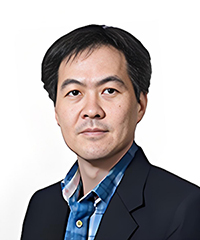
Tee Hui Teo
Research field: Integrated Circuits, Artificial Intelligence, IC Design, Device Characterization & Modelling.
Senior Lecturer, Singapore University of Technology and Design, Singapore.
Tee Hui Teo graduated with Master of Engineering and Ph.D. from National University of Singapore and Nanyang Technological University in 2000 and 2009 respectively in Electrical & Electronic Engineering. Since 1996, he was with Sharp, ST-Microelectronics, Intelligent Micro-Devices (Matsushita), and etc. as a senior Integrated Circuits (IC) designer, prior joining Institute of Microelectronics, Agency for Science, Technology and Research (A*STAR), Singapore as principle investigator in advanced IC design R&D. In 2010, he joined education sector for setting up both Analog and Digital IC design courses and laboratories for Technical University of Munich, Asia. He is currently with Singapore University of Technology and Design. T. Hui is a Senior Member of IEEE, and Fellow of IES (Institution of Engineers Singapore). He has served as General Chair of several international academic conferences, as well as Editorial Board Member and Guest Editor of several international journals.